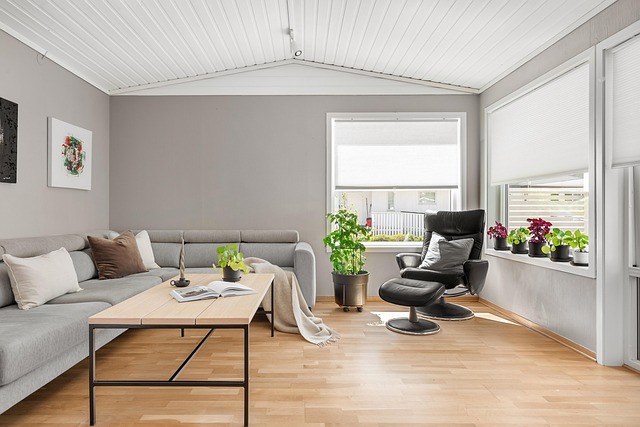July 10, 2024 – Investing $100K in real estate can be a game-changer for your financial future. Whether you’re looking for passive income, long-term appreciation, or tax benefits, real estate offers multiple opportunities to grow your wealth. However, with so many options available, choosing the right strategy is crucial.

This comprehensive guide will walk you through the best ways to invest $100K in real estate, compare different investment models, analyze risks, and provide actionable tips to maximize returns.
Why Invest $100K in Real Estate? Key Benefits
Real estate remains one of the most stable and profitable investment options for wealth creation. Here’s why:
✅ Steady Cash Flow – Rental properties generate monthly passive income.
✅ Appreciation – Historically, real estate values increase over time.
✅ Tax Advantages – Deductible expenses include mortgage interest, property taxes, depreciation, and repairs. (Learn more about how to reduce taxable income with real estate.)
✅ Inflation Hedge – Unlike cash, real estate prices rise with inflation, preserving purchasing power.
✅ Leverage – Banks readily finance real estate, allowing you to control a large asset with a small down payment.
However, real estate investing isn’t without risks. Let’s explore the best strategies for deploying $100K wisely.
Top 6 Ways to Invest $100K in Real Estate (2024 Edition)
1. Buy and Hold Rental Properties
Best for: Investors seeking long-term wealth & passive income.
Types of Rental Investments:
- Single-Family Homes (SFH) – Easier to manage, lower tenant turnover.
- Multi-Family Homes (Duplex, Triplex, Quadplex) – Higher cash flow (multiple renters).
- Short-Term Rentals (Airbnb, VRBO) – Higher returns but more management.
- Commercial Rentals (Offices, Retail Spaces) – Longer leases but higher risk.
How to Start?
- Find a Growth Market (e.g., Texas, Florida, Tennessee).
- Secure Financing (20-25% down payment for mortgages).
- Calculate Cash Flow (Rent – Mortgage – Expenses = Profit).
Pros:
✔ Predictable monthly income
✔ Property appreciation over time
✔ Tax deductions (depreciation, repairs, interest)
Cons:
✖ Requires active management (or hiring a property manager)
✖ Risk of bad tenants or vacancies
Estimated ROI: 8-12% annually (rent + appreciation).
🔗 Learn more at BiggerPockets Rental Guide.
2. Real Estate Investment Trusts (REITs) – Passive Investing
Best for: Investors who want liquidity & zero management.
REITs are companies that own income-producing real estate (apartments, malls, offices). They pay 90% of profits as dividends.
Best REITs for 2024:
| REIT | Type | Dividend Yield |
|---|---|---|
| VNQ (Vanguard Real Estate ETF) | Diversified | 4.2% |
| O (Realty Income Corp) | Retail | 5.1% |
| AMT (American Tower) | Cell Towers | 3.5% |
| PLD (Prologis) | Industrial | 2.8% |
Pros:
✔ No property management needed
✔ High liquidity (buy/sell like stocks)
✔ Monthly/quarterly dividends
Cons:
✖ No control over investments
✖ Sensitive to interest rate hikes
Estimated ROI: 7-10% annually (dividends + growth).
🔗 Compare REITs at Yahoo Finance REITs.
3. House Flipping (Fix & Sell for Profit)

Best for: Investors with renovation experience & risk tolerance.
How It Works:
- Buy distressed properties (foreclosures, auctions).
- Renovate (kitchen, bathrooms, flooring).
- Sell quickly for profit.
Key Metrics:
- 70% Rule: Don’t pay more than 70% of ARV (After Repair Value) – repair costs.
- Holding Period: 3-6 months (avoid long-term market risks).
Pros:
✔ High short-term profits (20-30% ROI per flip)
✔ No long-term tenant headaches
Cons:
✖ High risk (cost overruns, market crashes)
✖ Requires contractor network
Estimated ROI: 15-30% per flip (if executed well).
🔗 Learn flipping at FlipNerd Academy.
4. Real Estate Crowdfunding (Invest in Large Projects)
Best for: Investors who want diversification with low effort.
Top Platforms:
| Platform | Minimum Investment | Avg. Returns |
|---|---|---|
| Fundrise | $10 | 8-12% |
| RealtyMogul | $5,000 | 10-15% |
| Yieldstreet | $10,000 | 9-14% |
Pros:
✔ Access to luxury apartments, commercial buildings
✔ Passive income with low minimums
Cons:
✖ Lock-up periods (3-5 years)
✖ Lower liquidity than REITs
Estimated ROI: 8-15% annually.
🔗 Explore options at Fundrise.
5. BRRRR Method (Buy, Rehab, Rent, Refinance, Repeat)
Best for: Investors who want scalability with little cash.
How It Works:
- Buy a distressed property ($100K).
- Renovate ($20K).
- Rent out ($1,500/month).
- Refinance (pull out equity).
- Repeat!
Pros:
✔ Reuse the same $100K for multiple properties
✔ Infinite scaling potential
Cons:
✖ Complex process (requires good credit & lenders)
Estimated ROI: 20%+ annually (leveraged returns).
6. Real Estate Syndications (Passive Ownership in Big Deals)
Best for: Accredited investors ($200K+ income or $1M net worth).
How It Works:
- Pool money with other investors to buy apartment complexes, hotels.
- Earn cash flow + profit share upon sale.
Estimated ROI: 15-25% annually.
How to Invest $100K Safely? (Step-by-Step Plan)
Step 1: Define Your Goals
- Passive Income? → Rentals, REITs, Crowdfunding.
- Quick Profits? → Flipping, BRRRR.
- Diversification? → Mix of all strategies.
Step 2: Research Markets
- Best 2024 Markets: Dallas, Tampa, Nashville (high growth, low taxes).
- Avoid: Overpriced cities (e.g., San Francisco, NYC).
Step 3: Secure Financing
- Traditional Loans (3.5-20% down).
- Hard Money Loans (For flippers, 10-12% interest).
Step 4: Start Small & Scale
- First Property: Single-family home or REITs.
- Later: Multi-family or commercial.
Real Estate vs. Stocks: Which is Better?
| Factor | Real Estate | Stocks |
|---|---|---|
| ROI | 6-25% | 7-10% |
| Liquidity | Low | High |
| Effort | Medium-High | Low |
| Leverage | Yes (Mortgages) | No |
| Tax Benefits | High | Low |
Verdict:
- Want passive income? → Real estate.
- Prefer liquidity? → Stocks.
Final Advice: How to Invest $100K Wisely?
✔ Beginners: Start with REITs or Fundrise (easy, passive).
✔ Intermediate: Buy 1-2 rental properties.
✔ Advanced: Try house flipping or BRRRR.
💡 Pro Tip: Always consult a real estate advisor before investing. For more financial insights, check out our guide on the 3-generation rule of wealth.
🔗 For more insights, visit NerdWallet Real Estate.
Additional Resources
- How to Reduce Taxable Income with Real Estate – Embedded in the Tax Advantages section.
- The 3-Generation Rule of Wealth – Added in the Pro Tip section.
- How to Pay Off Debt Fast with Low Income – Added in the conclusion for financial planning context.
FAQs: How to Invest $100K in Real Estate (2024 Guide)
1. Is $100K Enough to Invest in Real Estate
Yes! $100K is enough for:
- A 20% down payment on a $500K rental property.
- Investing in multiple REITs or crowdfunding deals.
- Flipping a lower-cost home in affordable markets.
- BRRRR strategy (recycling capital for multiple properties).
Tip: If buying a property, keep $10K-$20K extra for repairs/vacancies.
2. What’s the Safest Way to Invest $100K in Real Estate
The lowest-risk options are:
✅ REITs – Diversified, liquid, no management.
✅ Rental Properties in Stable Markets – Long-term cash flow.
✅ Real Estate Crowdfunding – Spread risk across projects.
Avoid high-risk strategies like flipping unless experienced.
3. How Much Monthly Income Can $100K Generate in Real Estate
| Investment Type | Estimated Monthly Income |
|---|---|
| Rental Property | $800-$1,500 (after expenses) |
| REITs | $500-$800 (dividends) |
| Crowdfunding | $600-$1,200 |
| House Flipping | $0 (one-time profit) |
Note: Depends on location, financing, and market conditions.
4. Should I Pay Cash or Finance a Rental Property
Financing (Mortgage) is Better Because:
✔ Leverage boosts ROI (e.g., 5% appreciation on $500K property > $100K cash purchase).
✔ Tax deductions on mortgage interest.
Pay Cash Only If:
- You want 100% cash flow (no mortgage payments).
- The property is cheap (e.g., $100K home in Midwest).
5. What Are the Biggest Risks When Investing $100K
⚠ Vacancies – No rent = mortgage due.
⚠ Bad Tenants – Late payments, property damage.
⚠ Market Crash – Property value drops.
⚠ Unexpected Repairs – Roof, HVAC, plumbing costs.
How to Mitigate:
- Screen tenants carefully.
- Keep 6 months’ expenses in reserves.
- Buy in high-demand areas.
6. How Do I Start Investing with No Experience
Step-by-Step for Beginners:
- Educate Yourself – Read books, listen to podcasts (e.g., BiggerPockets).
- Start Small – Invest $10K in REITs or crowdfunding.
- Partner with Experts – Join local real estate investor groups.
- Buy a Turnkey Rental – Managed by a company (low effort).
7. Can I Invest $100K in Real Estate Without Buying Property
Yes! Passive options include:
- REITs (e.g., VNQ, O) – Trade like stocks.
- Crowdfunding (e.g., Fundrise) – Invest in large projects.
- Real Estate Syndications – Pool money with other investors.
Best for those who want zero landlord responsibilities.
8. What’s Better: Short-Term Rentals (Airbnb) or Long-Term Rentals
| Factor | Short-Term Rentals | Long-Term Rentals |
|---|---|---|
| Income | Higher ($2K+/month) | Stable ($1.5K/month) |
| Effort | High (cleaning, turnover) | Low (lease agreements) |
| Risk | Seasonal demand | Steady occupancy |
Verdict:
- Airbnb: Best in tourist areas (e.g., Miami, Orlando).
- Long-Term: Safer for consistent cash flow.
9. How Do I Avoid Taxes on Real Estate Profits
Legal Tax Strategies:
- Depreciation – Deduct property “wear and tear.”
- 1031 Exchange – Defer taxes by reinvesting profits.
- Live in the Property – $250K (single)/$500K (married) tax-free gains.
For details, see our guide on tax deductions for real estate investors.
10. Where Should I Invest $100K in Real Estate in 2024
Top 5 U.S. Markets for 2024:
- Dallas, TX – Job growth, affordable homes.
- Tampa, FL – No state income tax, high rental demand.
- Nashville, TN – Population boom, strong economy.
- Atlanta, GA – Low prices, landlord-friendly laws.
- Boise, ID – Fast appreciation (but cooling now).
Avoid: Overpriced cities (e.g., San Francisco, NYC).
11. How Long Before I See Profits
- Rentals: 1-3 months (after finding tenants).
- REITs/Crowdfunding: Immediate dividends (monthly/quarterly).
- Flipping: 3-6 months (after sale).
- Appreciation: 3-5+ years.
Patience is key!
12. Should I Use a Property Manager
Yes if:
- You live far from the property.
- You hate handling repairs/tenants.
Cost: 8-12% of monthly rent.
DIY if you want higher profits and have time.